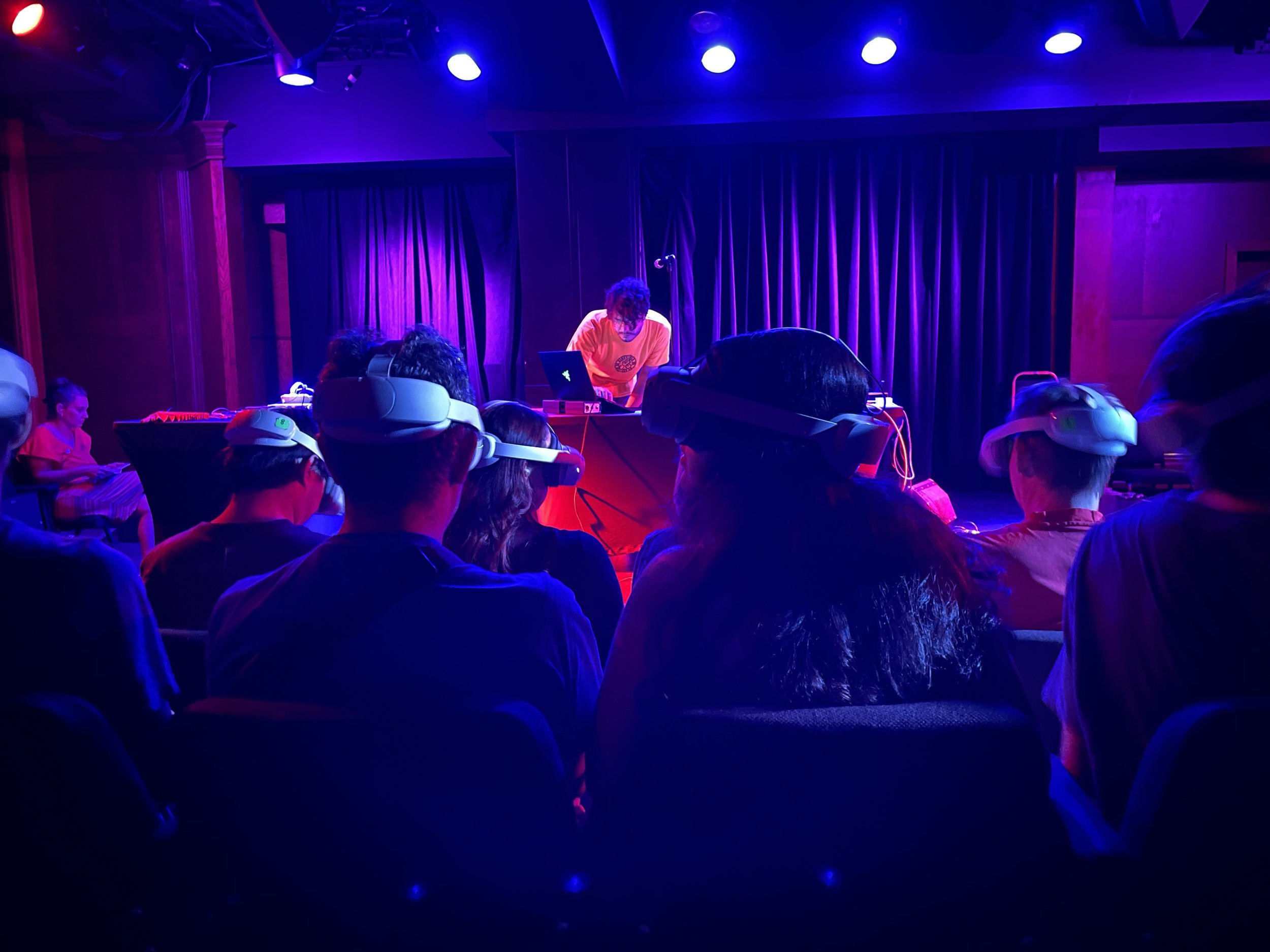Interview with John Smith: The Art Of Live Showcasing And The Essence of Americana
Dubbed the future of folk music by Pentangle’s John Renbourn, singer-songwriter John Smith sits down with British Underground’s Almass Badat to share ‘Tracks and Trails’, his carefully selected Americana playlist , a candid first-hand account of live showcasing over the years and why Americana music is a unique celebration of great storytelling.
John Smith’s first showcase was at South by Southwest (SXSW) for British Underground where he shared the bill with Everything Everything and Riz Ahmed, who was performing as Riz MC at the time. “It was an incredible experience”, remembers John, “especially meeting Riz. He was so gracious and energetic. I remember thinking, "I really hope he does well," and of course, now he’s got an Oscar. That showcase was in Austin, Texas, a great experience”.
Right after his US showcase debut, John played another show at a different venue which, in comparison, was “a complete disaster. There were about 300 drunk people talking over me and heckling. I stood there and had to deal with it”. The memory isn’t a fond one but John’s perspective is key to his creative development as well as his live performance skills. “It's one of those experiences that teaches you a lot. You have to play as many crappy gigs as possible to prepare for situations like that. Standing on a loud stage with a tough crowd is something you have to get used to, if you want to be a performer”.
A quick search online brings up ‘consistent’, ‘unbelievable’ and ‘introspective’ to describe John. Born in Essex and raised in Devon, John is a seasoned live artist whose music travels around the world. He is signed to Thirty Tigers, the Nashville-based global music distribution, label services and management company and right now, John is celebrating the release of his album ‘The Living Kind’ with live performances into the new year, leading to his headline show at the O2 Shepherds Bush Empire on the 2nd of May 2025. At the heart of it all, John loves music and its cultural roots.
As we prepare for the AMA UK & British Underground UK Welcome Party live showcase at AMERICANAFEST 2024, enter the world of live music, Nashville and Americana with John Smith.
John, many people have heard of folk, but are less familiar with Americana. How does one define Americana music?
John Smith: I think Americana broadly means American folk music. It’s a rich, complex genre built around storytelling and skilled performance. When it’s done well, it connects you to something much bigger than the individual. The music has a certain atmosphere, a connection to history and tradition, and an ethos which is about pushing the constraints of its perceived boundaries and creating something new. What began as a broth of European folk traditions and African-American blues and gospel has evolved into something all of its own.
What do you find beautiful about this genre?
John Smith: The beauty of Americana is similar to that of folk music—it’s all about storytelling. When someone tells a story well, it connects you to a history and a culture that might not be your own, but perhaps it’s one that you can still somehow relate to. That’s what I love about country music, about Americana. They link you to a wide stream of experiences that are both universal and somehow deeply personal. As a guitarist I’m always drawn to the roots of Americana, the deep influence of the blues and gospel. So much of the music we now call Americana was pulled from the fire by Robert Johnson and shaped by giants like Lightnin' Hopkins and Sister Rosetta Tharpe. That music ran wild through generations and found me in the form of a Ry Cooder CD when I was ten years old, and showed me what I wanted to do with my own life.
Creating music is just one part of the artist’s musical journey. Just how important is live showcasing for an artist?
John Smith: Live showcasing is crucial. I started gigging as soon as I began writing songs, so performing those songs live has always been an essential part of the job. If you're just starting out, you need to get out and play as much as possible. Don't be too proud to play open mics or enter talent competitions. Just play to as many people as you can and learn how to deal with the crowd. If someone in the audience is heckling you, you have to know how to handle it, because it will keep happening and it can tear you to pieces if you're unprepared. It’s really important to enjoy the good moments when they come, because those are the ones that make all the struggles worthwhile.
You've performed abroad as well, like in Nashville. How do the US audiences compare to those in the UK?
John Smith: American audiences are very different, they’re a lot more vocal and enthusiastic. They whoop and holler, sometimes they even ask you questions in the middle of a performance. In the UK, audiences tend to be more reserved, but in America there’s no barrier between you and them. It can throw you off if you're not used to it, especially if you are jet-lagged and just want the show to go smoothly. That's the beauty of playing live; you learn to roll with the punches. It’s all about adapting and keeping the show alive, no matter what the audience throws at you.
“Nashville is a place where people hustle hard. At its core, you’re simply surrounded by people who love music. It doesn’t matter where you’re from. What matters is your authenticity and ability to play. ”
How have your live performances evolved over the years?
John Smith: I always try not to play a song the same way twice. I usually perform solo with just a guitar and a mic, so I need to keep things fresh. I come from a background influenced by folk and British guitar music, where improvisation plays a big role. That’s the exciting part for me—exploring the mistakes and seeing where they lead. I’ve never had the budget for putting on a big show, so I’ve focused on getting as much as I can out of my guitar. I can’t imagine playing to a backing track, being tied to a structure. I like the freedom to move things around on the fly, I think it keeps the performance alive and engaging. More recently I’ve been experimenting with sending different pickups into different effects, creating a big and rich soundscape with one guitar. The way I see it, I play the guitar for free and I get paid to run the business behind a laptop, or to sit at the wheel at 3am. That’s the hard bit. If the gig is fun, you’re doing alright.
The BU team is looking forward to returning to Nashville this September for AMERICANAFEST. For those that haven’t been yet, what is Nashville like?
John Smith: Nashville is a place where people hustle hard. At its core, you're simply surrounded by people who love music. It doesn't matter where you're from. What matters is your authenticity and ability to play. You will be judged on how well you can do your thing, of course, but if you’re good at it, people will respect it. American audiences, especially in Nashville, value authenticity. If you’re coming from overseas and you’re doing justice to their music, they’ll embrace you. But you have to be genuine about it, because they can spot a fake from a mile away.
How do you keep your authenticity while sharing your music to large audiences?
John Smith: I’m in the middle of an album cycle now, and I think about this a lot. I always hope that the projection of genuine artistic intent will happen naturally, just by staying on the road and being committed. I come from a time before the relentless barrage of social media promotion, and I find a lot of that side of the business really difficult. Looking at social media makes me far more anxious than any aspect of writing or performing. I came up at a time when it was all about gigging and generating word-of-mouth. I still feel that if I can get a year out of an album cycle, then I’m very fortunate. For me it will always be about playing shows and building my grassroots following. It’s very challenging, but it’s also incredibly rewarding when people keep coming back to your shows. I still believe that if you get in front of a few hundred people and sing your guts out, good things will happen. I feel that live music is an essential act of communion. It keeps us connected and sane. Social media has its place, but it can make us soft and less appreciative of the real magic that happens in a live setting. I decide what I think of an artist based on what they write and how they hold themselves on stage, not by how many followers they have.
“Social media has its place, but it can make us soft and less appreciative of the real magic that happens in a live setting.”
What is it like working with a solid, supportive team around you?
John Smith: Having a supportive team is essential. I work with Thirty Tigers, who have brought me to a wider audience. They help small scenes to become part of something bigger. They also understand that I have always seen live music as the solution, because it’s how I built my career. When you’re on the road you need a good manager to keep the wheels turning, and then to hear you out when you’re either exhausted, happy, angry or full of ideas. I couldn’t function properly without a good manager. I’m also very fortunate to have a good agent who keeps me on the road. It takes a long time to build a solid team.
Thank you for guest-curating Tracks and Trails, your Americana playlist. Could you share a bit about the thought and feeling behind it?
John Smith: All of the songs that are on Tracks and Trails pose questions or tell stories. I'm generally more interested in the atmosphere that a piece of music conjures, rather than the message or politics, or the technicality of the performance. Through my imaginings or my experience of Americana, I've tried to choose songs that make me feel connected to what I imagine Americana to be.
Finally, what are your favourite folky records?
Astral Weeks by Van Morrison. It’s like a gateway to some heavenly dimension. Time (The Revelator) by Gillian Welch is my all-time favourite country record. She and Dave Rawlings lay out the entire history of American music with just two guitars and two voices. It’s a beautiful, elegant record that is by turns full of sorrow and overwhelming joy, a perfect example of what Americana means to me.
See John Smith live by booking your tickets here, listen to John Smith’s Tracks and Trails playlist, find out more about AMERICANAFEST, and follow British Underground on instagram for our latest showcasing updates and opportunities.






